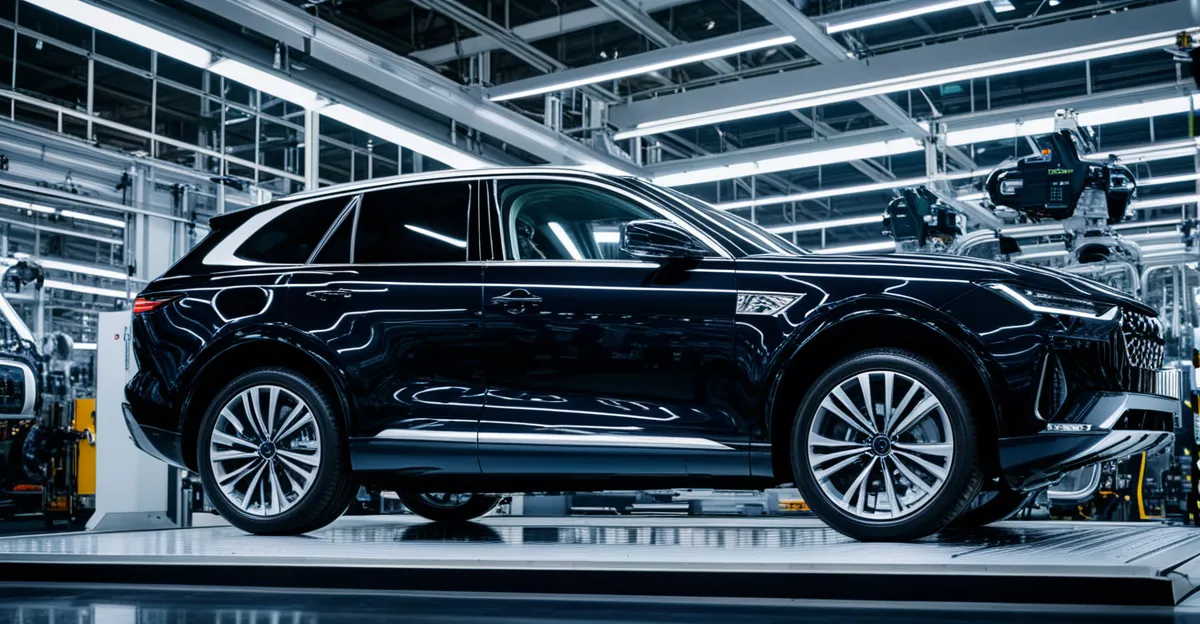The Revolutionary Role of Artificial Intelligence in UK Vehicle Manufacturing
The integration of artificial intelligence (AI) in the UK vehicle manufacturing sector is transforming the industry in unprecedented ways. From enhancing production efficiency to improving road safety, AI is becoming an indispensable tool for automotive manufacturers. Here’s a deep dive into how AI is reshaping the automotive industry.
The Impact of AI on Automotive Manufacturing
AI is not just a buzzword in the automotive industry; it is a game-changer. Here are some key ways AI is influencing automotive manufacturing:
Topic to read : What Are the Emerging Technologies Revamping the UK Automotive Industry?
Predictive Maintenance and Quality Control
AI-powered predictive maintenance is revolutionizing the way manufacturers manage their production lines. By analyzing vast amounts of data from sensors and machines, AI systems can predict when a piece of equipment is likely to fail, allowing for proactive maintenance. This reduces downtime and increases overall operational efficiency.
For example, a UK-based automotive manufacturer might use machine learning algorithms to analyze data from sensors on the production line. If the data indicates that a particular machine is showing signs of wear, the AI system can alert maintenance teams to perform necessary repairs before the machine fails.
Topic to read : What are the UK’s plans for developing hydrogen fuel infrastructure?
| Aspect | Traditional Method | AI-Driven Method |
|---|---|---|
| Maintenance | Reactive, based on schedules | Proactive, based on real-time data |
| Downtime | Frequent, unplanned | Minimal, planned |
| Efficiency | Lower | Higher |
| Cost | Higher | Lower |
Supply Chain Optimization
AI can significantly optimize the supply chain in the automotive industry. By analyzing big data, AI systems can predict demand, manage inventory, and streamline logistics. This ensures that the right parts are available at the right time, reducing delays and costs.
“AI has allowed us to anticipate and respond to changes in demand much more effectively,” said a supply chain executive at a major UK automotive manufacturer. “This has not only reduced our costs but also improved our ability to meet customer needs.”
Autonomous Vehicles and Driver Assistance Systems
One of the most exciting applications of AI in the automotive industry is in the development of autonomous vehicles and driver assistance systems.
Autonomous Driving
Autonomous vehicles rely heavily on AI to navigate roads safely. These vehicles use a combination of sensors, GPS, and AI algorithms to make real-time decisions about driving. While fully autonomous cars are still in the experimental phase, many vehicles on the road today feature semi-autonomous driving capabilities, such as lane-keeping and adaptive cruise control.
For instance, a UK-based startup is working on developing AI-powered autonomous vehicles that can navigate complex urban environments. These vehicles use machine learning to learn from real-world driving scenarios, improving their ability to handle unexpected situations.
Driver Assistance Systems
Driver assistance systems, such as automatic emergency braking and blind-spot detection, are becoming standard features in many new cars. These systems use AI to analyze data from various sensors and cameras to assist the driver in real-time.
“AI-driven driver assistance systems have significantly improved road safety,” noted a safety expert at the UK’s Department for Transport. “These systems can react faster and more accurately than human drivers, reducing the risk of accidents.”
Data Analytics and Decision Making
Data analytics is a crucial aspect of AI in the automotive industry. By analyzing vast amounts of data, manufacturers can make informed decisions about production, marketing, and customer service.
Customer Insights
AI can help manufacturers understand customer preferences and behaviors better. For example, data analytics can reveal which features are most popular among car buyers, allowing manufacturers to tailor their production to meet customer demands.
“Data analytics has given us a deeper understanding of our customers,” said a marketing executive at a UK car manufacturer. “We can now design cars that meet their specific needs and preferences.”
Operational Efficiency
AI can also optimize various operational aspects of the manufacturing process. For instance, AI can analyze production data to identify inefficiencies and suggest improvements. This can lead to significant cost savings and increased productivity.
Here are some use cases of AI in improving operational efficiency:
- Production Planning: AI can optimize production schedules to minimize delays and maximize output.
- Inventory Management: AI can predict inventory needs based on historical data and current demand.
- Energy Consumption: AI can analyze energy usage patterns to suggest ways to reduce energy consumption.
- Quality Control: AI can inspect products in real-time to detect defects and ensure high-quality output.
Executive Education and Workforce Adaptation
As AI becomes more integrated into the automotive industry, there is a growing need for executive education and workforce adaptation.
Training and Development
Manufacturers need to invest in training programs that equip their workforce with the skills necessary to work with AI systems. This includes understanding data analytics, machine learning, and other AI-related technologies.
“Executive education is crucial in this era of AI,” said an HR executive at a UK automotive company. “We need to ensure that our leaders and employees are equipped to leverage AI effectively.”
Workforce Adaptation
The introduction of AI also raises concerns about job displacement. However, many experts argue that AI will create new job opportunities that we cannot yet anticipate.
“AI is not here to replace humans but to augment their capabilities,” noted a labor market analyst. “As AI takes over routine and repetitive tasks, humans will focus on more creative and strategic roles.”
Practical Insights and Actionable Advice
For those looking to integrate AI into their automotive manufacturing processes, here are some practical insights and actionable advice:
Start Small
Begin with pilot projects to test the efficacy of AI in specific areas of your operation. This could be predictive maintenance, supply chain optimization, or quality control.
Invest in Data Infrastructure
Ensure that you have a robust data infrastructure in place. This includes collecting, storing, and analyzing large amounts of data.
Collaborate with Experts
Work with AI experts and consultants to understand the best use cases for your business. This could include partnering with universities or AI startups.
Focus on Workforce Development
Invest in training programs that help your workforce adapt to AI-driven changes. This includes executive education and skills development for all levels of employees.
Artificial intelligence is transforming the UK vehicle manufacturing industry in profound ways. From predictive maintenance and supply chain optimization to autonomous vehicles and data analytics, AI is enhancing efficiency, improving quality, and driving innovation.
As the industry continues to evolve, it is clear that AI will play an increasingly central role. By understanding the various use cases of AI and adapting to these changes, manufacturers can stay ahead of the curve and continue to thrive in a rapidly changing world.
In the words of a leading AI researcher, “The future of automotive manufacturing is not just about cars; it’s about the intelligent systems that make those cars smarter, safer, and more efficient.”











